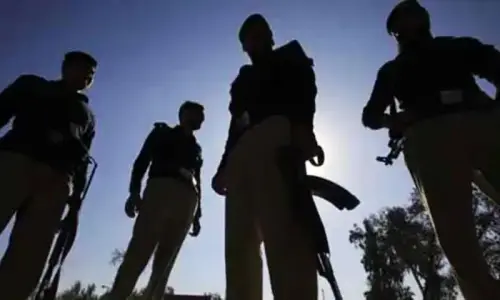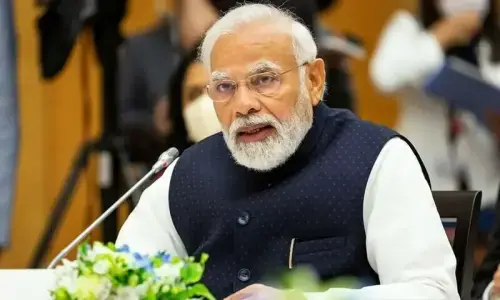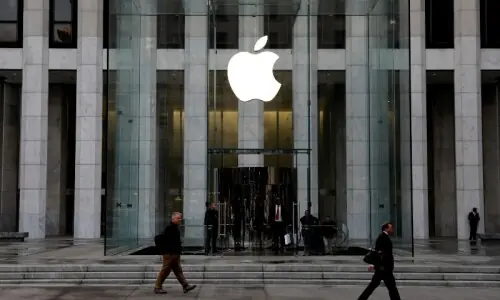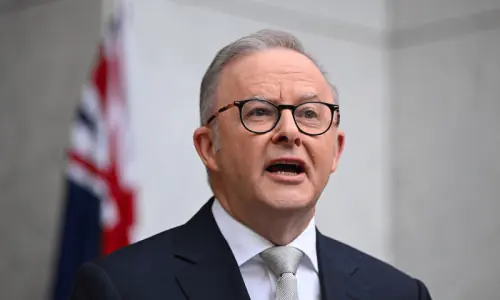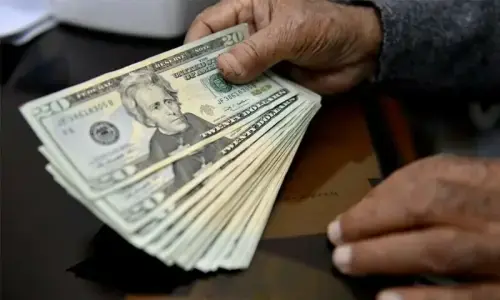PAKISTAN is finally getting back on the right diplomatic track. Prime Minister Shehbaz Sharif’s successful visits to Riyadh and Beijing have created an air of optimism regarding economic revival in the country. Army chief Gen Qamar Bajwa’s attempts to normalise the country’s relationship with the West using channels in London and Washington are also helping to reduce the external pressure which had been looming over the country for the last several months. That Pakistan is no longer on the Financial Action Task Force’s (FATF) ‘grey list’ is also a good omen.
During the prime minister’s visit to Beijing, China had assured full support for Pakistan’s efforts to stabilise its economy and financial situation. The Pakistani prime minister was the first foreign leader to travel to China since President Xi Jinping won his third term as supreme leader. That has political and strategic significance as well, which is also needed to boost Pakistan’s economic confidence. Earlier, during the prime minister’s visit to Riyadh, Saudi Arabia reportedly pledged an investment package worth $10 billion for Pakistan. Islamabad is hopeful that the kingdom will resuscitate the mega oil refinery project, which was shelved due to some political complications that had arisen between the two states during the rule of the PTI government.
Gen Bajwa has been successful, for the most part, in repairing the country’s trust deficit with the West, mainly the US, which is essential for generating regional geopolitical balance for Pakistan. These are positive developments which the coalition government and the establishment could use to gain domestic support, as the ongoing political crisis has put them both in a defensive position.
Pakistan had lost its balance in its foreign relations over the last few years. The Taliban takeover of Afghanistan, and the cipher controversy propagated by former prime minister Imran Khan were the two key events that aggravated that imbalance and caused bitterness in Pakistan’s relationship with the US and the West.
The challenge facing internal security restricts the Chinese from coming to Pakistan.
Two other factors caused diplomatic stress for Pakistan. First, Pakistan’s decision to join the short-lived alternative Muslim leadership initiative led by Turkey, Iran, and Malaysia annoyed its friends in the Gulf. Secondly, the Chinese did not like the attempts by the outgoing PTI government to renegotiate the costs of CPEC projects and establish the CPEC Authority. Mr Khan presumed that most of the CPEC projects were scarcely negotiated or done so in a skewed manner. The establishment also believed he could convince China to renegotiate CPEC projects as Malaysia had done the same. However, our power elites ignored the fact that sovereign guarantees were involved in the projects. This reorientation discourse slowed down the CPEC projects.
Editorial: Reviving CPEC
Mr Khan was not solely responsible for making errors of judgement. It was a collective mistake on the part of the power elites who were overconfident that they could manoeuvre a relationship with their allies in the East and West, despite the country’s weak economy and the crippling impact of the Covid-19 impact on the global economy. The establishment wanted complete control, and Mr Khan joined the venture to remove the tag of PML-N from the CPEC projects.
The power elites soon realised their miscalculations in foreign relations, but Mr Khan had already taken a different path. On one side, he attempted to become a leader of the ummah, and on the other, his priorities remained narrowly focused on securing political over national interests. The country is in recovery mode now. It seems that the military leadership, after having worked to repair the country’s ties with Western nations, has now taken up the task of encouraging the government to reach out to Pakistan’s friends in the East. This is somehow bringing balance back into the country’s geopolitical and geo-economic policies.
Pakistan’s economy needs structural reforms, but global changes create a more challenging environment for developing nations. Pakistan already appears to be trying to navigate its options for mitigating future challenges, including barter trade with Afghanistan and buying energy from Russia in Chinese yuan. However, it still needs to adopt a more diverse and pragmatic approach, focusing on India and other South and Central Asian nations.
Though exiting the FATF list has brought some relief, the challenge facing internal security is still complex and restricts foreign investors, including the Chinese, from coming to Pakistan. Various militant groups, Islamists and separatists, are still active in the country and are diversifying their targets. Very recently, Sindh’s Counter-Terrorism Department arrested a suspected terrorist who allegedly intended to kill a Chinese doctor in Hyderabad and was associated with the perpetrators of a similar attack on Chinese dentists in Karachi in September. Such incidents, even if on a low scale, create a big impact and shatter the confidence of foreign investors.
Afghanistan and security will remain the two major denominators of Pakistan’s engagement with the international community. The US and China have different priorities in Afghanistan, although neither want the country to harbour terrorist networks. For China, Afghanistan is a neighbour and a potential partner in its Belt and Road Initiative. Despite its complicated relationship with the Taliban regime, Pakistan is still capable of adopting a role which fits in with the goals of China and the US. Pakistan’s only condition would be that India should not have an extensive role in Afghanistan. China would agree, and the US can learn a lesson from its past engagement in Afghanistan.
Pakistan must review its approach towards Afghanistan to keep its central position intact. Such an approach should be inclusive, politically and economically, and regional connectivity should be the core objective of Pakistan’s policies towards Afghanistan. More formal trade with Afghanistan will need regulatory measures related to finance, customs and border security. Enhanced economic ties with Afghanistan can increase Pakistan’s leverage to force the Afghan Taliban to take terrorism-related complaints seriously.
Maintaining a fine balance in foreign policy requires delicacy at the engagement level and a flexible approach that is compatible with global norms.
The writer is a security analyst.
Published in Dawn, November 6th, 2022















